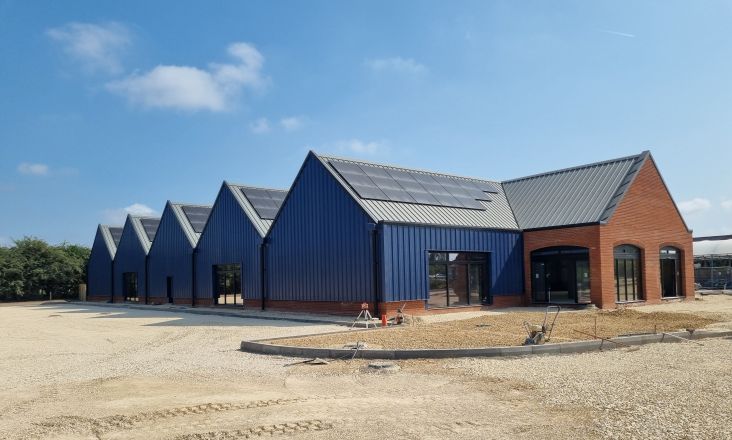Final green light set for two new sports hubs in Leeds
Yorkshire property investors face increased tax scrutiny as HMRC steps up enforcement
Property investors across Yorkshire are experiencing heightened scrutiny from HMRC as the tax authority intensifies its Let Property Campaign. A recent analysis of enforcement data reveals that landlords in the region, particularly those in Leeds, Sheffield, and rural areas, are confronting complex compliance challenges. The latest figures indicate that HMRC has recovered over £12 million in rental income taxes, with much of the focus on buy-to-let properties, student accommodation, and holiday lets.
Yorkshire’s diverse property market, ranging from the student housing sector in Leeds and Sheffield to rural holiday properties in the Dales, presents specific tax challenges for landlords. With rental income taxed across multiple types of property, investors face an evolving landscape of regulations, including stricter enforcement and the introduction of more invasive investigations.
Leeds and Sheffield, as major hubs of student accommodation and varying housing stock, present particular difficulties for landlords. Compliance concerns are compounded by slower rental inflation in the region, currently at just 1.1%, among the lowest in the UK. Landlords managing diverse portfolios, including buy-to-let properties and short-term lets, are increasingly seeking professional tax advice to navigate the growing complexity of tax regulations.
HMRC’s Let Property Campaign provides landlords with the option to voluntarily disclose undeclared rental income, offering reduced penalties compared to those who face investigation without prior disclosure. However, with the growing demands of tax regulation and the intensified enforcement efforts, professional tax advice has become crucial for Yorkshire landlords.
Work to build new station at Haxby takes major step forward
Work to build a new station at Haxby has taken a major step forward after funding was confirmed by the Department for Transport.
Historic garden centre branches out with £4m expansion in Sleaford
Longstanding Bradford company expands into major new HQ
EDGE expands Leeds health and social care offer with appointment of new director
Leeds Teaching Hospitals boosts research funding with £140m investment
Leeds Teaching Hospitals NHS Trust has secured £140 million in external research funding over the past five years, supporting groundbreaking medical treatments. The Trust has recruited over 117,000 participants into 1,460 research projects, with contributions from healthtech and life sciences companies. These projects cover a wide range of innovations, including AI, advanced therapies, digital pathology, and experimental medicine.
The funding has come through a mix of industry partnerships, research grants, and commercial studies. This collaboration has allowed the Trust to surpass its recruitment targets, enrolling 17,000 more participants than its goal of 100,000, and it became the UK’s largest recruiter for cancer research last year.
The annual Research and Innovation Conference, taking place on 10 July, will showcase this progress, highlighting the Trust’s role in advancing healthcare through partnerships with both small enterprises and global corporations. The event will also feature over 70 speakers and workshops, focusing on how collaborations are driving future healthcare advancements.
Recent innovations being presented include a breakthrough in leukaemia treatment and AI-powered software that accelerates chest X-ray diagnostics. The Trust’s ongoing investments in infrastructure, including the Innovation Pop-Up and plans for the Old Medical School transformation, reflect its commitment to shaping the future of healthtech and life sciences.
Leeds’ expanding research network includes collaborations across Europe and the Middle East, with significant contributions from local partners such as NIHR.
Leeds United moves forward with Elland Road expansion plans
Leeds United has proposed a major redevelopment of Elland Road, aiming to increase its seating capacity to 53,000. The expansion, which includes updates to the West and North Stands, will see the stadium grow by over 15,000 seats, positioning it as one of England’s largest football venues.
The club is working with Leeds City Council to finalise the planning application, expecting a decision within 13 weeks. The project is designed to meet rising demand for tickets, particularly from the 26,000 fans currently on the season ticket waiting list.
Plans for the West Stand include an expansion from 8,000 to 17,750 seats, and the North Stand will rise from 10,400 to 15,300. In addition to the football upgrade, the stadium will also see enhanced hospitality facilities and will host up to eight non-football events annually.
The redevelopment is seen as essential for Leeds United to maintain its competitiveness in both domestic and European competitions. The club also anticipates significant economic benefits for the local area, with regeneration plans extending to surrounding land, where new housing, a sports arena, and commercial spaces are being considered. Construction is expected to begin in 2026 if the plans are approved.












